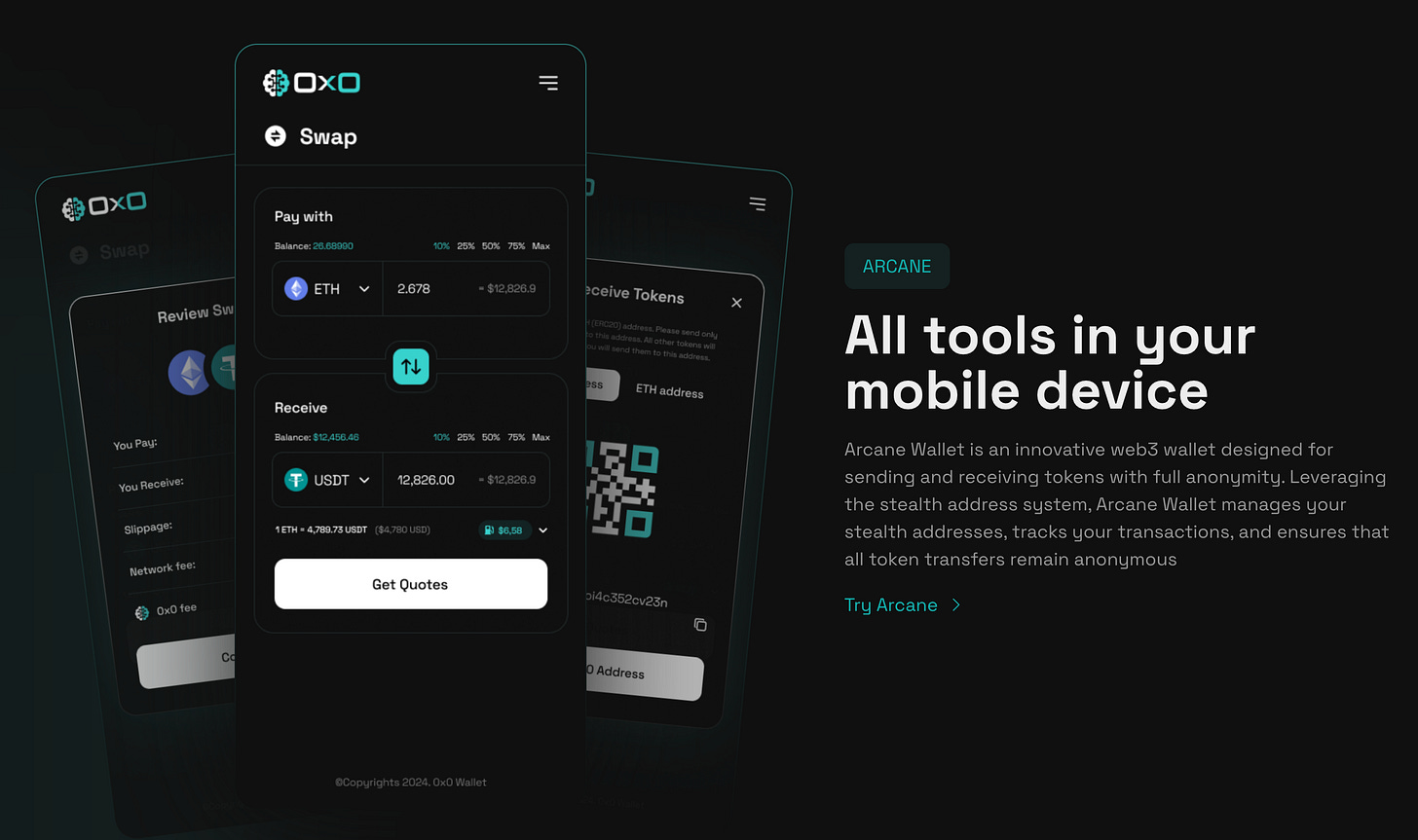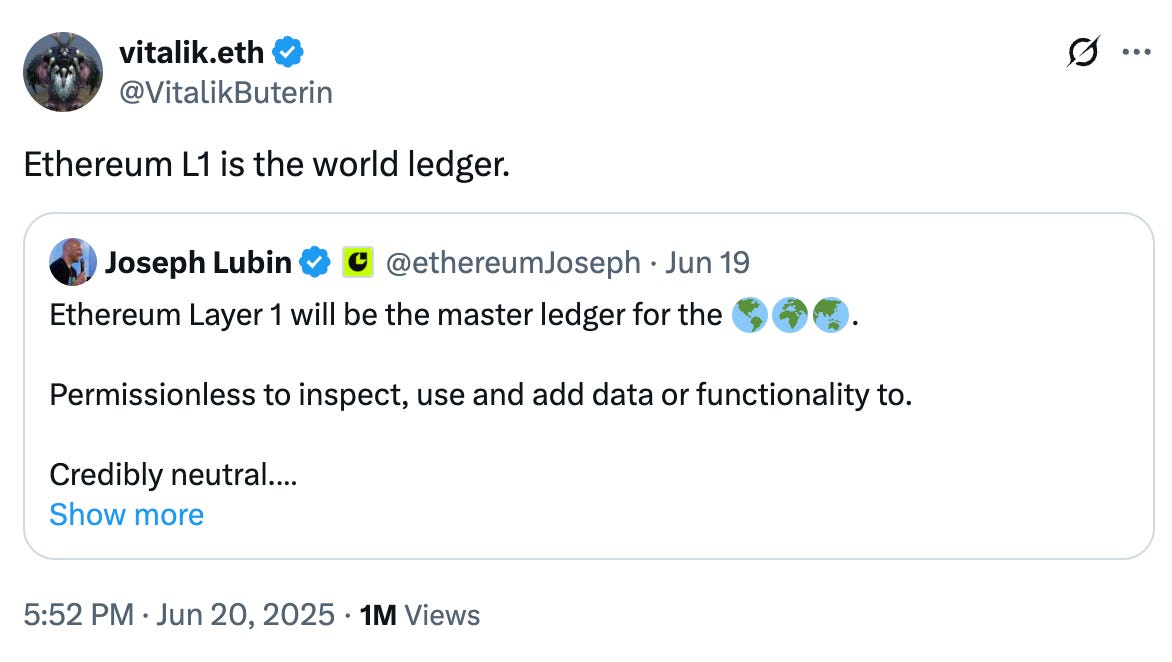Wall Street's Staking Rush 📥
How two regulatory moves turned crypto's biggest risk into its safest bet.
In 1688, ship captains would gather at Edward Lloyd's coffee house in London to find people willing to insure their voyages. Wealthy merchants would literally sign their names under the ship's details, becoming 'underwriters' who staked their personal wealth to back these risky ventures.
The more reputable underwriters backed a voyage, the safer it became for everyone. The safer the system, the more business it attracted. It was a simple deal, provide capital, reduce risk for everyone, collect your cut of the profits.
Reading about the new US Securities and Exchange Commission (SEC) guidelines, it's clear crypto just digitised what those coffee house underwriters invented — people earn returns by putting their assets at risk to make the whole system more secure and trustworthy.
Staking. Yes, it's back on the table.
So much changed on May 29, 2025. The day the US government clarified that staking wasn't going to land you in legal trouble. First, let's remind ourselves why this matters so much right now.
Trade Crypto Like It Should Be
0x0 Exchange lets you swap crypto across blockchains—no sign-ups, no KYC, just fast, low-fee trades.
Privacy-centric on-chain ecosystem with Arcane stealth wallet, Spectre private DEX + leveraged trading, and AI-powered smart contract auditing via 0x0.ai token share rewards.
✅ Cross-chain swaps in one transaction
✅ No sign-ups – start trading instantly
✅ Low fees with best-rate aggregation
✅ Open-source and community-driven
Your crypto, your rules. No permissions needed.
👉 Start trading at 0x0.exchange
In staking, you lock your tokens up to help secure the network and earn steady rewards.
Validators use their staked tokens to verify transactions, propose new blocks, and keep the blockchain running smoothly. In return, the network pays them in newly minted tokens and transaction fees.
Without stakers, proof-of-stake networks like Ethereum would collapse.
Sure, you could stake your tokens, but nobody knew if the the SEC would come knocking one day claiming you were running an unregistered securities offering. This regulatory uncertainty kept many institutions on the sidelines, watching enviously as retail stakers earned 3-8% annual yields.
The Great Staking Stampede
On July 3, the Rex-Osprey Solana + Staking ETF goes live as the first US fund offering direct crypto exposure with staking rewards. It's holding SOL through a Cayman subsidiary and staking at least half of those holdings.
"First-ever staked crypto ETF in the U.S.," Rex Shares announced.
And they're not alone.
Robinhood just launched crypto staking for US customers, starting with Ethereum and Solana. Kraken added Bitcoin staking via Babylon Protocol, letting users earn yield on BTC while keeping it on the native chain.
Read: Layered Bitcoin
VeChain dropped a $15 million StarGate staking programme. Even Bit Digital is dumping its entire Bitcoin mining operation to focus solely on Ethereum staking.
What has changed now?
Two Regulatory Dominoes
First, the SEC’s May 2025 staking guidance.
It says that if you’re staking your own crypto to help run a blockchain, that’s totally fine and not considered a risky investment or a security.
This covers solo staking, delegating your coins to someone else, or staking through a trusted exchange, as long as your staking is directly helping the network. This removes most staking from the “investment contract” definition under the Howey test. It means you no longer have to worry about accidentally breaking complicated investment laws just by staking and earning rewards.
The only red flag here is anyone promising guaranteed profits, especially when mixing staking with lending, or issuing fancy terms like DeFi bundles with guaranteed returns or yield farming.
Second, the CLARITY Act.
This is a proposed law in Congress that would make it clear which government agency is in charge of different digital assets. Specifically meant to protect people who are just running nodes, staking, or using self-custody wallets, so they aren’t treated like Wall Street brokers.
It introduces the concept of “investment contract assets,” a new category of digital commodities, and establishes criteria for when a digital asset is regulated as a security (by the SEC) versus as a commodity (by the CFTC). The Act sets up a process for determining when a blockchain project or token is “mature” and can move from SEC to CFTC oversight, with time limits for SEC review to prevent indefinite delays.
So, what does this mean for you?
You can stake your crypto in the US right now with a lot more confidence, thanks to the SEC’s guidance. If the CLARITY Act passes, it’ll make things even more straightforward and safer for everyone who wants to stake or participate in crypto.
Staking rewards are still taxed as ordinary income at the time you receive “dominion and control” over them, and capital gains apply if you later sell the rewards at a profit. All staking income, regardless of amount, must be reported to the IRS.
Who Gets the Spotlight? Ethereum.
No, still ~$2500.
The price did not impress, but the change is visible in Ethereum's staking metrics. The amount of staked ETH just hit an all-time high, exceeding 35 million tokens, nearly 30% of the entire circulating supply. Although it's been building for months, all that infrastructure suddenly matters a lot more now.
What’s happening in corporate boardrooms?
BitMine Immersion Technologies just raised $250 million to buy and stake ether, with Fundstrat's Tom Lee as chairman. The company is betting that staking rewards plus potential price appreciation will outperform traditional treasury assets.
SharpLink Gaming doubled down on this strategy, expanding its ETH treasury to 198,167 tokens and staking 100% of its holdings. During just one week in June, they earned 102 ETH in staking rewards. Free money for simply keeping their tokens locked up.
Meanwhile, Ethereum ETF issuers are lining up for staking approval. Bloomberg analysts project a 95% probability that staking ETFs will get the regulatory green light within the next few months. BlackRock's head of digital assets called staking a "huge step change" for ether ETFs, and he's probably right.
If approved, these staking ETFs could reverse the outflows that have plagued Ethereum funds since launch. Why settle for price exposure when you can get price exposure plus yield?
Crypto Speaking Wall Street's Language
For years, traditional finance struggled to understand crypto's value proposition. Digital gold? Maybe. Programmable money? Sounds complicated. Decentralised applications? What's wrong with centralised ones?
But yield? Wall Street understands yield. Sure, bond yields have recovered from their near-zero lows in 2020, with 1-year treasuries back around 4%. But a regulated crypto fund that generates 3-5% annual staking rewards while also offering potential upside from the underlying asset? That looks downright attractive.
This is about legitimacy. When pension funds can buy Ethereum exposure through a regulated ETF that generates yield by securing the network, that’s a big deal.
The network effects are already visible. As more institutions stake, networks become more secure. As networks become more secure, they attract more users and developers. As adoption grows, transaction fees increase, boosting staking rewards. It's a virtuous cycle that benefits everyone involved.
You don't need to understand blockchain technology or believe in decentralisation to appreciate an asset that pays you for holding it. You don't need to believe in Austrian economics or distrust central banks to appreciate an asset that’s productive capital. You just need to understand that networks need security, and security providers deserve compensation.
That’s all for today. See ya next week with another deep dive.
Until then … hodl tight.
Thejaswini
Token Dispatch is a daily crypto newsletter handpicked and crafted with love by human bots. If you want to reach out to 200,000+ subscriber community of the Token Dispatch, you can explore the partnership opportunities with us 🙌
📩 Fill out this form to submit your details and book a meeting with us directly.
Disclaimer: This newsletter contains analysis and opinions of the author. Content is for informational purposes only, not financial advice. Trading crypto involves substantial risk - your capital is at risk. Do your own research.










